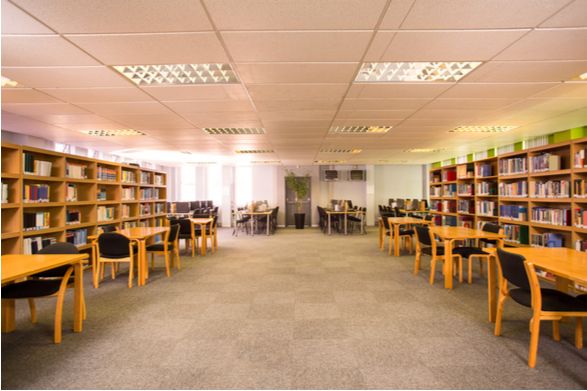A few years ago, I stumbled into a branch public library near Sixteenth Street in D.C., and was stunned to find that it felt . . . just like a library. A library of my youth. Books were being read, librarians were being consulted. There was a brisk business at the automated card catalogue. Bliss!
When I asked why this small branch was so different from the Hogarthian, larger public library I generally patronized, the librarian discreetly suggested that the larger branch had become an “adjunct” (her word) to the nearly homeless shelter.
It appears that something like this is happening all over the country.
A must-read piece by Stephen Eide over at City Journal (“Disorder in the Stacks: Homeless Services Put an Increasing Burden on the New York Public Library”) describes the daily scene at the city’s Science, Industry and Business Library (SIBL), located at corner of Madison Avenue and 34th Street:
Every morning before 10 am, when “SIBL” opens, a small crowd of men gathers outside the door, many carrying their personal items in plastic bags and wearing dirty and mismatched clothes.
Some may have slept the night before at the Bellevue men’s shelter on 30th Street, a 15-minute walk away. By late afternoon, on cold days, the number of homeless patrons at SIBL can swell to more than 40; their presence is especially dominant in the lower-level reading room.
SIBL, which the NYPL plans to close as part of a broad reorganization of its midtown facilities, opened in 1996 and was touted as “a prototype library for the twenty-first century.” That has turned out to be the case, but not in the way that the NYPL intended.
SIBL’s de facto function as a daytime homeless shelter is shared by many public libraries in New York and across the nation. The homeless set up shop in NYPL branches to charge their cell phones, watch Netflix and YouTube, play video games, stay warm, sleep (though that’s technically against library regulations), use the bathroom, and generally while away the time.
Homelessness is a problem, according to Eide, that has confronted every mayor since Ed Koch. But single-adult homelessness has been growing under the de Blasio administration, which has doubled expenditures on homelessness.
Eide recounts that in a 2017 documentary Ex Libris: The New York Public Library, NYPL president Anthony Marx opens a staff meeting with on “homeless patrons” with these words: “Everyone recognizes the problem seems to be increasing.”
What the library system spends yearly on security ($12 million) is not so far behind what it spends for books and educational materials ($16 million). More security is needed in branches frequented by the homeless. Libraries also offer members of their staffs training in diffusing threatening situations, many of which are related to the homeless.
Some libraries operate services for the homeless. The Grand Central branch, for example, has two full-time staffers who help the homeless fill out applications for government benefits. The big draws, however, are air conditioning and access to bathrooms and computers.
Not surprisingly, the public library system in San Francisco has embraced its role as adjunct to homeless shelters. It provides a separate social-services department staffed by social workers and “peers” (the formerly homeless).
Homelessness is a terrible problem, and we need to confront its roots.
But it is not the purpose of the library system to function this way.
Just to end with a bit of heresy: it might also be time to rethink the number of libraries we support. Nobody has ever been a more dedicated library brat than me.
But I go to the library much more rarely now, given what’s online (did you know you can get the Library of Congress card catalogue without leaving home?).
It may be time to spend less on on-site libraries, but it is not time to turn our libraries into homeless shelters.
Don’t blame the homeless—blame the officials who aren’t willing to address real roots of homelessness (drug addiction and fatherless families, anyone?) and instead are willing to shove the problem off on institutions with other purposes.


